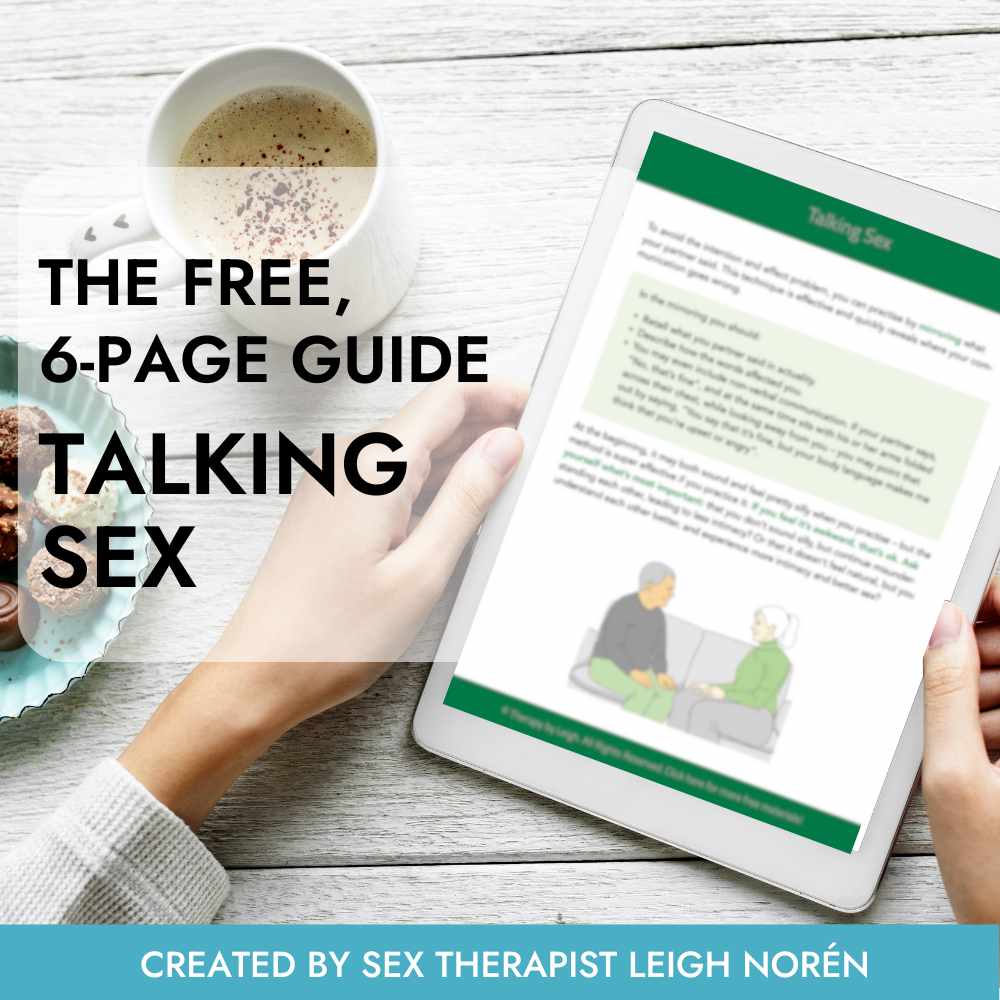Communication – the heart of our relationships. Without it, it’s like a pizza without the dough – missing the most important ingredient that holds it all together! If you’re wondering “what does lack of communication do to a relationship?” – you’ll find the answer to your question right here in this article – written by a sex and relationship therapist.
Relationships are communication
Relationships can be many things, but for a lot of people, they’re actually all about communication. That’s why you got together in the first place: because what happened when you connected sent you swooning.
So whether it be verbal, physical, or spiritual – the connection between you and what you create in that connection – is where the magic happens. This means when you struggle to communicate, the magic quickly disappears.
Whether I work with couples on relationship issues or sexual ones through sex therapy, communication difficulties is the number one thing most couples have in common. Below are three main ways it affects your relationship.
You become invisible
Sometimes you’re the one who isn’t communicating, and other times, your partner is the one who has checked out.
But more often than not, the lack of communication is caused by both parties.
For example, some people feel it’s important to talk about everything, whereas others have learned to keep things to themselves, or to communicate through non-verbal communication.
Over time, these simple differences, if not recognized, can lead to shutting down on both sides.
The person who wants to talk doesn’t feel seen, and the person whose hugs once said more than a thousand words – say nothing.
Instead of seeing each other and connecting about things you used to do – you only see yourself and your own point of view.
If this sounds like your relationship – know that you’re not alone and it is fixable.
It affects your health
A lack of communication can have consequences that affect more than just the relationship – it can affect your personal health, too.
Sometimes, the lack is about the connection being lost; the way you made each other laugh, the words of comfort you shared when upset, the hugs at the end of each day – vanish.
However, other times, lack of communication is in fact about communicating in the wrong way. Negative communication patterns replace the ways we used to connect and create intimacy, and end up taking a toll on our overall health.
Things like not being listened to, passive-aggressive or lots of conflict, create situations where you feel unappreciated. If you constantly need to defend yourself or feel like your partner has checked out, this can cause low-grade stress and anxiety.
Have you grabbed your free resource yet?
My free resource, Talking Sex, helps you and your partner reduce conflict and misunderstandings about sex.
Download the guide, and you also get instant access to my deeply appreciated weekly newsletter. You can unsubscribe at any time.
You stop having sex
Communication isn’t just about the day-to-day stuff, it’s also about sex. For some sex is a means of connecting and creating closeness, for others it’s important to feel connected in order to feel sexual desire.
But no matter what sex means to you or what needs to be in place in order to spark sex drive – a lack of communication is seldom an aphrodisiac.
In fact, a loss of communication can often be one of the reasons you’re experiencing no sex drive whatsoever. This can cause you to question things and fret about the state of your relationship – but even if you’re thinking “I have no sex drive and it’s ruining my relationship” – there are ways of rekindling the fire – and turning this negative trend into a positive, beautiful one.
When answering the question of what does lack of communication do to a relationship – it’s also important to address how our everyday communication affects our sexual communication.
When we sleep with our partner we’re effectively communicating with our bodies. But to do this in a way that makes us both feel good – we need to communicate wants, needs and desires.
The only way our partner can fulfill us sexually is if we let them know what makes us tick – and listen to them when they tell us what they need. More on how to communicate specifically about sex can be found in my blog post on communication in relationships.
Biting the bullet
Communication difficulties are common and can lead to a non-existent sex life, anxiety, and feeling unseen.
However – they’re solvable. As with most things, it’s better to bite the bullet early and work on things proactively, then to let negative patterns set in stone.
In order to do this we need to switch the question from: what does lack of communication do to a relationship, to how can we communicate better so that our relationship makes us happy? By turning the conversation around and focusing on what we can solve, as opposed to what’s going wrong – the magic is just round the corner.




